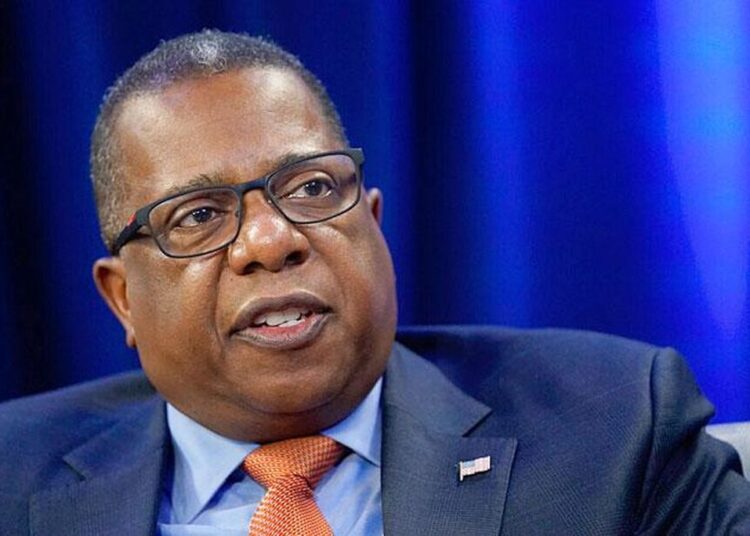The United States government reiterated its intention to support the growing private sector in Cuba to contain the historical influence of Moscow and Beijing on the island over more than six decades.
At a hearing Thursday in the House Foreign Affairs Committee, Assistant Secretary of State for Western Hemisphere Affairs Brian Nichols said the United States remains concerned about attempts by Russia and China to shape the nature of Cuba’s future.
The congressional event inquired about the topic entitled “Competition between large powers in the Western Hemisphere,” two hundred years after the implementation of the Monroe Doctrine, a key strategy of U.S. foreign policy to defend its interests in Latin America and the Caribbean, then belonging to colonial European powers.
Against the “evil influence” of Russia and China
In the case of Cuba, Nichols argued that greater support from Washington for the emerging private business sector remains vital to countering “the evil influence” of Russia and the People’s Republic of China, adding that the promotion of private enterprise is only one of the U.S. actions in Cuba.
“We constantly advocate for respect for the fundamental freedoms of Cubans and for the release of political prisoners,” said the diplomat.
In April, and on an official visit to Spain, Nichols highlighted the importance that the work of small businesspeople and entrepreneurs is acquiring in the Cuban economy; “they are providing the people with what the government cannot give them.”
“We have reasons to be hopeful and we are going to continue supporting these enterprises that provide work, supplies, and food to Cubans,” the official stressed then, as summarized by the Spanish news agency EFE.
Congresswoman Salazar
At the hearing this Thursday in Washington, Florida Congresswoman María Elvira Salazar repeated her opposition to “Cubans using the U.S. banking system to launder money and help our enemies.”
One of the enemies of the Cuban government in the Capitol thus alluded to the recent authorization by the White House for business owners to access bank accounts in the United States from the island through the Internet, among other commercial incentives for their ventures.
According to Nichols, the people who participate are examined and the participation of Cuban government officials is specifically prohibited.
For his part, New Jersey Republican legislator Thomas Kean asked Nichols if President Joe Biden’s administration has determined that the Cuban regime has allowed or promoted the participation of Cuban mercenaries as part of Russia’s aggression against Ukraine.
Nichols said they have raised this issue with Cuban officials and raised it with his Cuban counterparts; the recruitment of Cubans worries them and he thought the reports about it are worrying for everyone. He added that Russia’s military relationship with Cuba continues to be an important relationship for them, and that is demonstrated by the fact that Russian ships are visiting Cuba as they were speaking.
Preceded by a great media stir, a fleet composed of the frigate Gorshkov, the nuclear submarine Kazan and two support ships — the oil tanker Pashin and the rescue tug Nikolai Chiker — arrived this Wednesday at the port of Havana after carrying out maneuvers in the Atlantic Ocean, followed by U.S. services.
Cuba takes its time
The Cuban government is studying the new measures announced by the White House. Through its president, Miguel Díaz-Canel, it announced that they responded to a “subversive design, embodied in known strategies, which contemplate the manipulation and use of this sector as a potential agent of change in the country.”
In his X account, the president wrote that the steps taken by the Biden administration did not touch the “fundamental body of the blockade,” “nor the other sanctions of its maximum pressure policy.”
Matthew Aho, legal advisor at the Akerman law firm, one of the hundred largest in the United States and which works with Cuban and American businesspeople, said that he does not expect many banks to be open to potential risks, even though there is a huge potential for e-commerce.
“The banks will be very cautious, but in the end, we don’t need ten banks willing to do this; we need one. What the administration did is a political statement, it says this sector exists, and it is real. But we have to see how the banks react, Aho said.
For his part, John Kavulich, president of the U.S. Trade and Economic Council, also wonders who will risk taking the first leap into the void, “playing the long term and being the first to open one of these accounts.”









